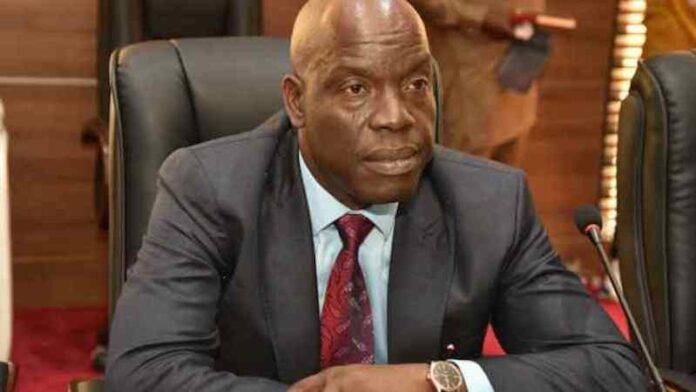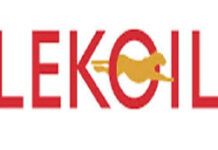•Says local security groups helping to curb sabotage
•Oil price steadies above $90 after Israel-Iran tensions
Chigozie Amadi
The Chief Executive of the Nigerian Upstream Petroleum Regulatory Commission (NUPRC), Mr Gbenga Komolafe, has said the recently enacted crude measurement regulation is already being implemented and will help block oil losses in the industry.
In essence, the regulation provides a legal and regulatory framework for the provision of metering services in upstream petroleum operations as well as its design, manufacturing, testing, calibration, among others.
The NUPRC estimates that 40 per cent of the over $4 billion worth of crude oil reported to have been stolen annually was attributable to inaccurate measurement of production volume.
Speaking on Arise Television, Komolafe said the move was part of the commission’s efforts to ensure improvement in the hydrocarbons accounting in the nation.
He argued that the commission was doing everything within its powers to ramp up the ‘digital monitoring’ of the country’s daily production, to ensure that losses are curbed.
“Accurate metrics of production are very important. It is as important as ramping up, increasing the production. So, the commission at the moment, one of the initiatives we introduced was to ensure the fact that we put in place a regulation we call measurement regulation.
“As I speak, the implementation of the provisions of that regulation has commenced and we expect to see the nation being able to have the digital monitoring of its daily production and that is very critical,” he stated.
The NUPRC boss further maintained that there had been a drastic reduction in crude oil theft since the engagement of private securities by the Nigerian National Petroleum Company Limited (NNPC).
Although Nigeria’s crude oil production has risen from a low of 932,000 barrels per day, to a recent high of 1.42 million bpd, Nigeria has still been unable to meet its Organisation of Petroleum Exporting Countries (OPEC) quota, even after it was slashed from 1.74 million bpd to 1.5 million bpd in 2024.
He pointed out that the joint efforts of kinetic efforts implemented by the security forces and the non-kinetic approach by the commission had impacted the sector positively.
“I will say that having private security has tremendously helped in minimising the impact of the losses the nation has recorded in terms of crude oil theft.
“And of course, without the efforts of the security forces, you can imagine without that, where we would have been as a nation. So, we’ve witnessed drastic reduction in terms of volume of crude oil losses.
“Aside those kinetic efforts that are being made and that are impacting positively in reducing the impact of crude oil, there is the fact that for us, as a commission, we are equally making efforts in terms of the non-kinetic aspect to actually complement the kinetic effort,” he added.
Meanwhile, oil prices were largely steady yesterday after the US announced plans to hit Iran with new sanctions after its weekend attack on Israel, and as Israel’s war cabinet is set to meet for the third time in three days.
Brent crude futures for June delivery rose 5 cents, or 0.1 per cent, to $90.15 a barrel, while US crude for May gained 14 cents, or 0.2 per cent, to $85.55.
Concern that Iran would respond to the April 1 strike on its embassy compound in Damascus had sent Brent to $92.18 on Friday, its highest since October. But prices retreated on Monday after Iran’s attack on Israel over the weekend proved to be less damaging than anticipated.
US Treasury Secretary, Janet Ellen, said she intends to hit Iran with new sanctions in coming days due to its unprecedented attack on Israel, and it could seek to reduce Iran’s capacity to export oil, Reuters said.
“With respect to sanctions, I fully expect that we will take additional sanctions action against Iran in the coming days,” Yellen said, adding that Iran’s oil exports “remains in focus as a possible area that we could address.”
Israel’s war cabinet was set to meet for the third time in three days on Tuesday, an official said, to decide on a response to Iran’s attack, amid international pressure to avoid full-scale confrontation.

























